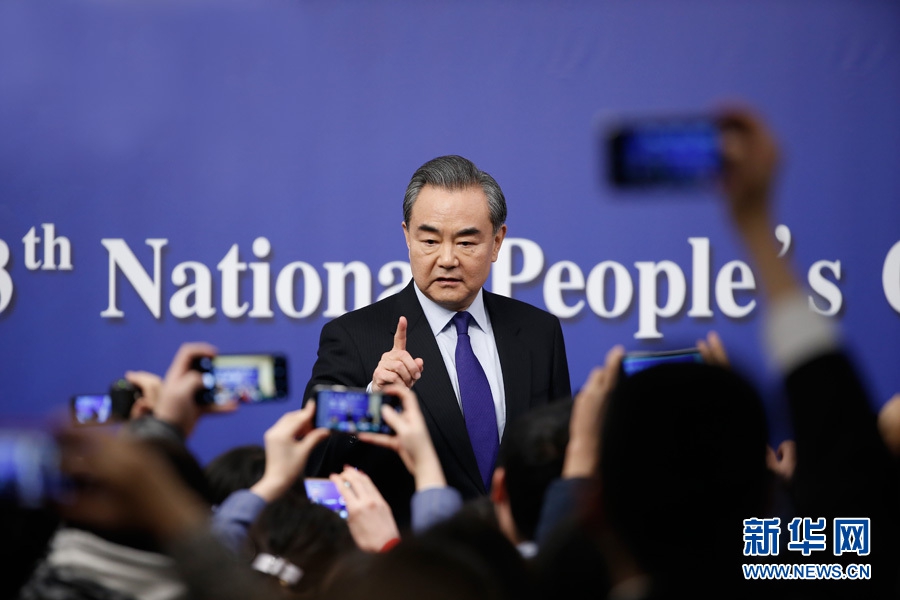
1, ERP——Enterprise ResOurce Planning Enterprise Resource Planning System refers to a management platform built on the basis of information technology to provide decision-making and operation means for enterprise decision-making levels and employees with systematic management ideas.
2. ERP, the full Chinese name is Enterprise Resource Plan, is a computer system for enterprise resource management and business process management, focusing on the utilization, management and integration of enterprise resources. ERP takes a plan as the starting point, which can be a large order in the market or a strategic goal of the enterprise.
3. Enterprise Resource Planning, that is, ERP (Enterprise Resource Planning), is a management platform based on information technology and provides decision-making and operation means for enterprise decision-making and employees with systematic management ideas.
4. Simply put, it is the information management platform of the enterprise. The most core part of ERP is the purchase, sale and storage of the enterprise. From the purchase of raw materials to the sales and transportation after the completion of the product, it can be clear at a glance in the computer, which is convenient for the management of the enterprise. Compared with the traditional operation method, it is more reliable and reliable, which can effectively avoid human mistakes and enterprise waste.
1. ERP system is a brief of EnterpriseResourcePlanning It refers to a management platform built on the basis of information technology, integrating information technology and advanced management ideas, and providing decision-making means for enterprise employees and decision-makers with systematic management ideas.
2. Extend knowledge. At present, the ERP brands in the domestic market include: SAP, Oracle, Oracle.
3. Introduction to erp ERP is the abbreviation of Enterprise Resource Planning. In the 1990s, an American IT company based on computer information, IT technology development and enterprise supply chain management at that time. The demand of reason, predicting the development trend and impending change of enterprise management information system in the information age in the future, and put forward this concept.
4. To understand the knowledge involved in ERP, I recommend your book Principles and Applications of MRPII/ERP, Tsinghua University Press. Take some time to understand this book, and your ERP principle will be passed.In this process, you also have to learn financial management, production and operation and other relevant knowledge.
5. ERP, the full Chinese name is Enterprise Resource Planning, is a computer system for enterprise resource management and business process management, focusing on the utilization, management and integration of enterprise resources. ERP takes a plan as the starting point, which can be a large order in the market or a strategic goal of the enterprise.

1. ERP is the abbreviation of Enterprise Resource Planning, which refers to the combination of information technology and advanced management ideas based on information technology. With systematic management ideas, enterprise employees and decisions The policy level provides a management platform for decision-making means.
2. The so-called ERP refers to the software and systems used to plan and manage all core supply chains, production, services, finance and other processes of the organization. ERP can be used to automate and simplify the activities of the entire enterprise or organization, such as accounting and procurement, project management, production management, compliance and supply chain operations.
3. What is ERP? What are the functions? ERP is a system based on information technology to help enterprises build a system to manage various businesses.
4. ERP is a transcendence of MRPII. In essence, ERP is still with MRPII as the core, but it surpasses the traditional MRPII in function and technology. It is a customer-driven, time-based enterprise resource plan for the management of the entire supply chain.
5. As an integrated software terminal, the key contents of ERP are the enterprise's materials, finance, information and human resources.
6. ERP system refers to a management platform based on information technology and providing decision-making and operation means for enterprise decision-making and employees with systematic management ideas.It is a new generation of integrated management information system developed from MRP (Material Demand Plan), which expands the functions of MRP, and its core idea is supply chain management.
Binance app-APP, download it now, new users will receive a novice gift pack.
1, ERP——Enterprise ResOurce Planning Enterprise Resource Planning System refers to a management platform built on the basis of information technology to provide decision-making and operation means for enterprise decision-making levels and employees with systematic management ideas.
2. ERP, the full Chinese name is Enterprise Resource Plan, is a computer system for enterprise resource management and business process management, focusing on the utilization, management and integration of enterprise resources. ERP takes a plan as the starting point, which can be a large order in the market or a strategic goal of the enterprise.
3. Enterprise Resource Planning, that is, ERP (Enterprise Resource Planning), is a management platform based on information technology and provides decision-making and operation means for enterprise decision-making and employees with systematic management ideas.
4. Simply put, it is the information management platform of the enterprise. The most core part of ERP is the purchase, sale and storage of the enterprise. From the purchase of raw materials to the sales and transportation after the completion of the product, it can be clear at a glance in the computer, which is convenient for the management of the enterprise. Compared with the traditional operation method, it is more reliable and reliable, which can effectively avoid human mistakes and enterprise waste.
1. ERP system is a brief of EnterpriseResourcePlanning It refers to a management platform built on the basis of information technology, integrating information technology and advanced management ideas, and providing decision-making means for enterprise employees and decision-makers with systematic management ideas.
2. Extend knowledge. At present, the ERP brands in the domestic market include: SAP, Oracle, Oracle.
3. Introduction to erp ERP is the abbreviation of Enterprise Resource Planning. In the 1990s, an American IT company based on computer information, IT technology development and enterprise supply chain management at that time. The demand of reason, predicting the development trend and impending change of enterprise management information system in the information age in the future, and put forward this concept.
4. To understand the knowledge involved in ERP, I recommend your book Principles and Applications of MRPII/ERP, Tsinghua University Press. Take some time to understand this book, and your ERP principle will be passed.In this process, you also have to learn financial management, production and operation and other relevant knowledge.
5. ERP, the full Chinese name is Enterprise Resource Planning, is a computer system for enterprise resource management and business process management, focusing on the utilization, management and integration of enterprise resources. ERP takes a plan as the starting point, which can be a large order in the market or a strategic goal of the enterprise.

1. ERP is the abbreviation of Enterprise Resource Planning, which refers to the combination of information technology and advanced management ideas based on information technology. With systematic management ideas, enterprise employees and decisions The policy level provides a management platform for decision-making means.
2. The so-called ERP refers to the software and systems used to plan and manage all core supply chains, production, services, finance and other processes of the organization. ERP can be used to automate and simplify the activities of the entire enterprise or organization, such as accounting and procurement, project management, production management, compliance and supply chain operations.
3. What is ERP? What are the functions? ERP is a system based on information technology to help enterprises build a system to manage various businesses.
4. ERP is a transcendence of MRPII. In essence, ERP is still with MRPII as the core, but it surpasses the traditional MRPII in function and technology. It is a customer-driven, time-based enterprise resource plan for the management of the entire supply chain.
5. As an integrated software terminal, the key contents of ERP are the enterprise's materials, finance, information and human resources.
6. ERP system refers to a management platform based on information technology and providing decision-making and operation means for enterprise decision-making and employees with systematic management ideas.It is a new generation of integrated management information system developed from MRP (Material Demand Plan), which expands the functions of MRP, and its core idea is supply chain management.
OKX Wallet apk download latest version
author: 2025-03-07 10:47Binance Download for PC Windows 10
author: 2025-03-07 10:06OKX Wallet app download for Android
author: 2025-03-07 08:56 Binance login
Binance login
773.28MB
Check Binance download APK
Binance download APK
113.45MB
Check Binance app download Play Store
Binance app download Play Store
165.86MB
Check Binance US
Binance US
854.58MB
Check Binance download iOS
Binance download iOS
639.48MB
Check Binance login
Binance login
337.74MB
Check OKX Wallet apk download
OKX Wallet apk download
328.53MB
Check Binance login
Binance login
784.48MB
Check Binance download Android
Binance download Android
248.64MB
Check OKX Wallet download
OKX Wallet download
758.54MB
Check OKX download
OKX download
699.73MB
Check Binance login
Binance login
558.31MB
Check Binance APK
Binance APK
149.34MB
Check Binance app
Binance app
511.88MB
Check Binance US
Binance US
713.34MB
Check OKX Wallet extension
OKX Wallet extension
799.71MB
Check Binance app
Binance app
878.87MB
Check Binance US
Binance US
744.89MB
Check OKX Wallet download
OKX Wallet download
457.96MB
Check Binance app
Binance app
115.41MB
Check Binance download
Binance download
256.17MB
Check OKX Wallet to exchange
OKX Wallet to exchange
164.29MB
Check Binance APK
Binance APK
459.64MB
Check Binance app
Binance app
183.82MB
Check Binance app download Play Store
Binance app download Play Store
554.32MB
Check Binance app
Binance app
633.58MB
Check OKX download
OKX download
181.44MB
Check Binance Download for PC
Binance Download for PC
374.29MB
Check OKX app
OKX app
415.59MB
Check Binance APK
Binance APK
117.97MB
Check OKX download
OKX download
943.51MB
Check OKX review
OKX review
319.14MB
Check Binance login
Binance login
257.59MB
Check OKX Wallet apk download
OKX Wallet apk download
924.88MB
Check Binance download Android
Binance download Android
733.74MB
Check Binance app download Play Store
Binance app download Play Store
914.44MB
Check
Scan to install
Binance app to discover more
Netizen comments More
1740 稍胜一筹网
2025-03-07 09:28 recommend
2641 女中丈夫网
2025-03-07 08:58 recommend
2272 宴安鸩毒网
2025-03-07 08:54 recommend
2403 朝过夕改网
2025-03-07 08:53 recommend
2246 额手称庆网
2025-03-07 08:47 recommend